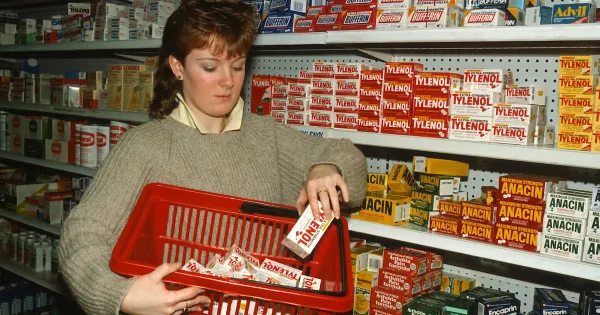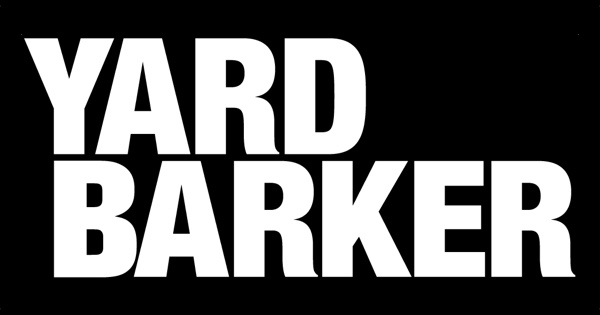
Robert Andrews would forever remember when his phone rang on Friday, September 30, 1982. He was assistant director for PR at Johnson & Johnson, whose pain reliever, Tylenol, was the best known over-the-counter drug in America. On the other end of the phone was a reporter from Chicago, looking for a comment.
“He told us that the medical examiner there had just given a press conference—people were dying from poisoned Tylenol,” Andrews recalled in a 1990 interview. “It was the first knowledge we had here in this department. We told him we knew nothing about it.”
Brands live in terror of moments like these—a sudden debacle that puts their name in the news, their reputation in question, and their future in doubt. Which is why, for Kenvue (the J&J spinoff that assumed custody of Tylenol in 2023), Monday’s White House press conference must have felt like the worst kind of déjà vu.
Announcing that the Federal Drug Administration (FDA) would advise women to avoid acetaminophen during pregnancy based on a long-rumored but never substantiated risk of autism, President Trump singled the brand out.
“Taking Tylenol is not good,” he said. “Don’t take it, don’t take it.”
The PR plight that Tylenol finds itself in this week is arguably its third—a bitter pill, considering the brand did nothing to cause any of them. What’s more, Kenvue’s immediate problem isn’t just yesterday’s finger-pointing, but the man pointing the finger.
“Kenvue is in a very difficult position when a sitting president uses the White House podium to discourage use of its flagship product,” said David Johnson, CEO of Strategic Vision PR Group, which specializes in crisis communications. “The most effective counter is not to go toe-to-toe politically, but to lean hard on science, safety, and trust.”
Fortunately, this is a brand with reserves of all three.
Poison pill
The poisoned Tylenol episode of 1982—the one that prompted Andrews’ phone to ring—exploded on the national scene when seven people died after taking Extra Strength Tylenol capsules laced with potassium cyanide. (Authorities never identified the perpetrator.)
To this day, business schools teach J&J’s response as a textbook example of effective crisis management.
CEO James Burke immediately set up an emergency strategy group, which stood up a toll-free information number, worked closely with the FBI, and eventually recalled 31 million bottles of Tylenol. Within six weeks, Burke’s team also rolled out tamper-proof packaging (today standard for consumer-health brands) and distributed coupons to 40 million people encouraging them that Tylenol was safe to use.
More trouble would come knocking on Tylenol’s door in 2010, when the FDA—alarmed by chronic rates of accidental overdoses of acetaminophen—required makers of the pain reliever to add a liver-damage warning to its packaging.
No brand wants to wear a sign warning of fatal injury, but here again J&J turned a hurdle into a chance to build public trust in its brand. Three years after the FDA’s admonition, it voluntarily added an additional warning to Tylenol’s cap that read: “Contains acetaminophen. Always read the label.”
In a prepared statement, the company said that it “takes acetaminophen overdose very seriously, which is why we have taken significant steps… to mitigate the risk.”
Tylenol’s latest crisis
Monday’s announcement at the White House has put the pain relief pill in the crosshairs once again. Kenvue responded quickly with a statement stressing that “a decade of rigorous research…confirms that there is no credible evidence linking acetaminophen with autism.”
But crisis communications experts recommend that the company continue to double down on its messaging.
“The statement was necessary, but entirely insufficient when facing this level of scrutiny,” said Evan Nierman, founder and CEO of crisis PR firm Red Banyan. He suggested Tylenol coordinate with major medical associations, pharmacy chains, and OB-GYNs “to create a unified front,” and to do so “with the same speed and authority that made their 1982 tampering response the gold standard.”
Johnson offered similar counsel. Kenvue, he said, should launch “a coordinated, fact-based media and digital campaign—brief, visual, and shareable—underscoring FDA approval, physician endorsements, and clear usage guidance,” he said. With an authoritative, clinical rejoinder like this, “Kenvue can reframe the conversation around health and safety rather than politics, while reassuring both the public and investors.”
Burke, who died in 2012, can’t give advice on this one, but his 1982 formula of putting concern for consumers before the company did pay for itself. After losing some $100 million on the recall and watching Tylenol’s sales fall by a third, within four years the pill was once again the leading pain reliever in America.
The rapid recovery even has a name: The Tylenol Effect.



